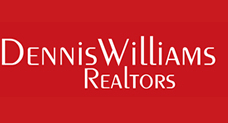How to calculate the return on your property investment
Owning properties can provide investors with steady rental income or capital appreciation when the property is sold for a profit. However, it is important to measure the return on investment (ROI) to determine the level of profitability of the property.
Before investing in a rental property, there are a number of key factors to take into account. “Location and the future of the location is the first and foremost aspect to consider when purchasing an investment property that will result in capital appreciation. The next features to take stock of are fixtures and fittings. Are they durable and will you have high maintenance costs?”
Establish if there is a demand for a particular property. Do your homework on the area and the types of properties that are in demand. It makes more strategic sense to invest in a two-bedroom unit instead of a three-bedroom house, if the demand for the former is greater.”
Buyers should look at a five-year view to invest as a minimum time frame. Ten years is preferable as this will generate a more valuable return on investment, as this should give the best capital appreciation on a well located and maintained property.
Below is an outline of how to calculate ROI
Cash Purchase
• If an individual purchases a property outright with no bond, the profitability or ROI is calculated as follows:
• If a property costs R1 million and the transfer costs (conveyancing fees, transfer duty, deeds office fee and V.A.T.) are R30 000, the total investment is R1,03 million
• Rent collection every month is R10 000.
In 12 months’ time as an example:
• R120 000 in rental income is earned
• However, there are expenses including maintenance, property taxes, levies and insurance which could total R24 000 per year or R2 000 every month.
• The annual return is R96 000 (R120 000 – R24 000) for the year
• The capital appreciation of the property after selling costs has increased by 3% equaling R30 900 (R1 060 900 – R1 030 000)
To calculate the property’s ROI:
• Divide the annual return (R96 000 + R30 900 = R126 900) by the amount of the total investment (R1, 03 million)
• ROI = R126 900 ÷ R1,03 million = 0.123 or 12.3%
• ROI is 12.3%
If the property is bonded, the profitability is worked out as follows:
• On the same property for R1 million there will be added costs, including conveyancing fees, bond initiation costs, deeds office fee and V.A.T.
• In addition to these costs, buyers should also make provision for additional charges, which can include rates and clearance certificates and prospective taxes amongst others. These costs amount to R30 000 resulting in the total cost being R1,03 million
• A down payment of R230 000 is made and the remaining R800 000 is bonded on a 20-year loan with a fixed interest rate of 10%
• The monthly principal and interest payment would be R7 720.17
• Add R2 000 per month to cover maintenance, property taxes, levies and insurance, which equals R9 720.17 in expenses every month
• With a rental income of R10 000 the owner would make R279.83 each month (rent minus bond repayment)
One year later:
• The investor earns R120 000 in total rental income for the year at R10 000 per month.
• The annual return is R3,357.96 (R279.83 x 12 months)
• The capital appreciation of the property after selling costs has increased by 3% R30 900 (1 060 900 – 1 030 000)
To calculate the property's ROI:
• Divide the annual return by the original out-of-pocket expenses (the down payment of R230 000) to determine the ROI.
• ROI: (R3,357.96 + R30 900) ÷ R230 000 = 0.15
• The ROI is 15%
Things to Consider
As demonstrated in the examples above, the ROI for a rental property is different depending on whether the property is financed via a home loan or paid for in cash. It is also important to bear in mind certain variables such as if the property is vacant and there is no rental income for a number of months or maintenance costs are higher than anticipated.

